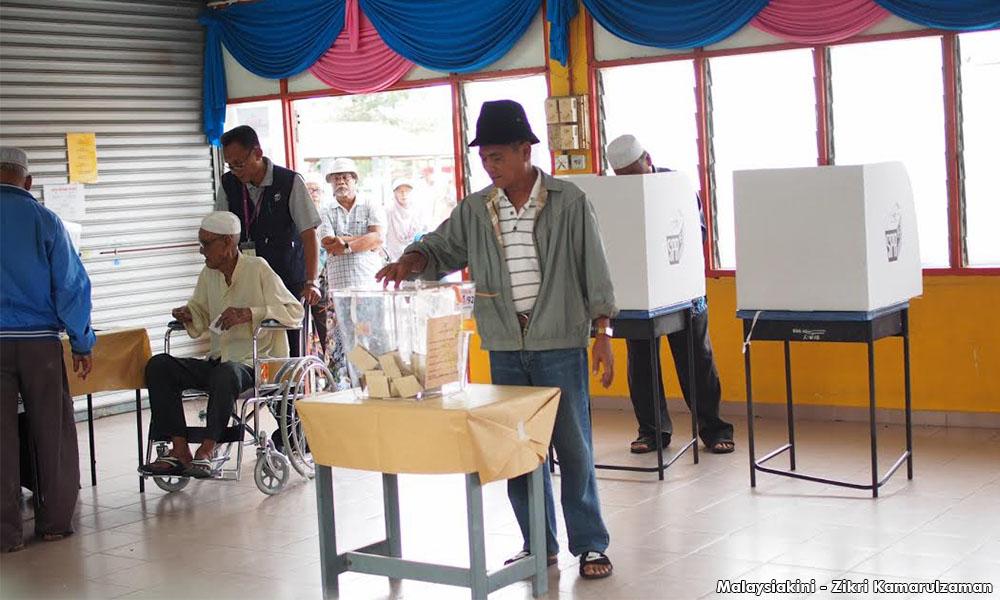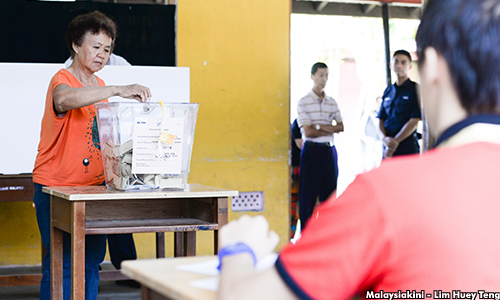
Malaysia’s decision to hold a midweek general election will discourage millions of citizens living abroad from voting, which could favour caretaker prime minister Najib Abdul Razak in a close contest, civil rights groups and opposition lawmakers said on Friday.
Najib’s long-ruling alliance lost the popular vote at the last election in 2013, and next month’s contest could be a difficult test for the 64-year-old, although he is expected to win. Najib is engulfed in a multi-billion-dollar graft scandal and is pitted against his old mentor and the country’s most seasoned campaigner Mahathir Mohamad.
With voting set for May 9, a Wednesday, millions of overseas Malaysians may not be able to vote, which the opposition says would work in favour of Najib’s Barisan Nasional (BN) alliance.
“The turnout rate in the 2013 election was approximately 85 percent. The BN is hoping to reduce turnout to below 75 percent,” said Ong Kian Ming, a lawmaker and national election strategy director for the opposition DAP.
“This may decrease turnout by as much as 10 percent or 1.5 million out of 15 million voters,” he said, quoting party estimates. “A significant proportion of these voters, more than 70 percent by my estimates, are anti-BN voters.”
A majority of the 2.7 million Malaysians living overseas are registered voters, said Global Bersih, the international advocacy arm of Malaysian electoral watchdog Bersih.
Malaysia has declared May 9 a public holiday, but the diaspora in places like Singapore and Hong Kong will need at least a few days off work to travel and vote, which will be difficult in the middle of the week, opposition activists said.
A day off may also not be enough for Malaysians working in cities like Kuala Lumpur who have to return to their hometowns or villages to vote, they said.
“This is another way to cheat the voters of their right to vote in this election,” Mahathir said earlier this week, although the veteran leader has himself held weekday polls three times during his iron-fisted 22-year rule in the Southeast Asian nation.
This, however, is the first weekday election in Malaysia in nearly two decades.

The government dismissed the opposition charges.
“Now it’s a public holiday, so it’s of no consequence,” Mustapa Mohamad, trade minister and senior ruling party leader, told Reuters.
“There are some challenges there but...the 9th has been declared a public holiday so I think this issue will fizzle out.”
Overseas Malaysians can register for postal voting, although this facility is not available for the estimated 500,000 Malaysians living in Singapore and others in Southeast Asian countries like Brunei and small parts of Thailand and Indonesia.
'Go Home To Vote'
Many Malaysians took to social media to offer funding and other services to help people return home to vote.
Chia Yee Xin, 22, an economics student at the National University of Singapore who was excited about voting for the first time, told Reuters that she was unable to head home to vote as the midweek polls coincided with her exams.
“I feel so helpless,” Chia said. “I feel that they (the government) are making it difficult for overseas Malaysians to vote because most of them are educated and will mostly vote for opposition.”
On Twitter and Facebook the hashtag #PulangMengundi, or ‘Go home to vote’, has been trending all week.
The large Malaysian diaspora in Singapore has been buzzing with ideas on how they could get in their votes.
A Facebook group is planning carpool trips from Singapore to Malaysia, and within Malaysia as well. Bus services between the countries have also been offering discounts for people travelling to vote.
Companies in Malaysia and outside offered off days to vote.
Swedish company Ikea said it is allowing a paid day off to all its 80 Malaysian staff in Singapore.
“It is their democratic right to vote,” an Ikea spokeswoman said. - Reuters



No comments:
Post a Comment
Note: Only a member of this blog may post a comment.